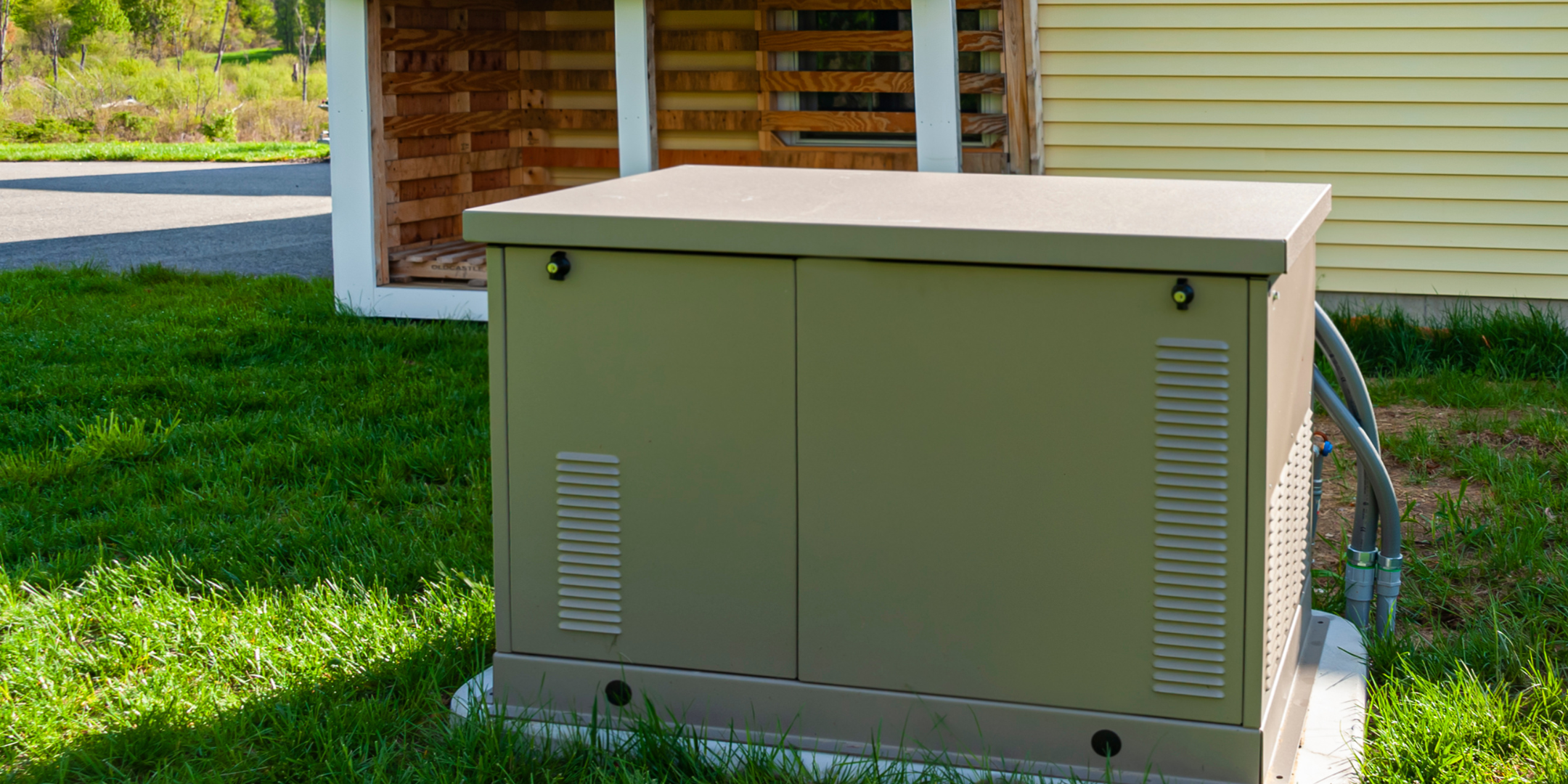What Size Whole-House Generator Do You Need? Sizing Tips and Examples
November 13th, 2024
5 min read
By Daphne Hunt

Power outages can be a huge inconvenience, especially if you're left without essential systems like heating, cooling, or refrigeration. Choosing the right size whole-house generator can feel confusing, especially when balancing your home’s needs with your budget.
With over 16 years of experience in HVAC and home power solutions, we’ve helped countless homeowners like you make smart choices for reliable backup power.
By the end of this article, you’ll know exactly how to choose the right generator size to keep your home running smoothly.
Why Choosing the Right Generator Size Matters
Selecting the correct generator size brings multiple benefits to your home and budget.
First, it ensures that essential appliances keep running—from heating and cooling systems to lighting and refrigeration—so you’re prepared for any outage.
Second, it optimizes fuel use by avoiding the pitfalls of an undersized generator, which may struggle and consume extra fuel, or an oversized generator, which could operate inefficiently.
Finally, a properly sized generator saves on costs, preventing overspending on unused capacity and reducing the risk of wear and tear that can shorten the generator’s lifespan.
2 Key Considerations When Sizing a Whole-House Generator
Choosing the right generator size depends on a few critical factors. Here’s what you need to consider:
1. Home Size
The size of your home is a key indicator of the generator capacity required to keep everything running smoothly during a power outage.
- Homes under 1,500 sq ft: A 7-10 kW generator is typically sufficient to cover basic appliances, essential lighting, and a refrigerator.
- Homes between 1,500 and 3,000 sq ft: A 17-20 kW generator will likely meet the needs of most midsized homes, covering appliances, lighting, and HVAC.
- Homes over 3,000 sq ft: For larger homes, consider a 22-25 kW or larger generator to power multiple appliances and possibly multiple HVAC systems.
2. Essential Appliances and Systems
Every household has different needs, and it’s important to list the appliances and systems you want to keep running during an outage. Consider the following essentials:
- Heating and Air Conditioning: HVAC systems use a lot of power and will significantly affect the generator size required.
- Refrigerator and Freezer: Critical for keeping food fresh and safe during an outage.
- Lighting in Key Areas: Essential lighting for safety and comfort.
- Sump Pump: For homes that rely on a sump pump, this is essential to prevent flooding.
- Water Heater: Particularly for homes with electric water heaters.
- Home Office Equipment: Necessary for those who work from home or rely on devices for communication.
Tip: Make a list of all the appliances you want to power, and check the wattage requirements for each. This will help you calculate your total power needs and find the best fit.
Understanding Running Watts vs. Surge Watts
When you’re using a generator, it’s important to know that each appliance in your home needs two types of power:
power:
1. Running Watts: This is the steady amount of power an appliance needs to keep working after it’s already turned on.
2. Surge Watts: This is the extra boost of power an appliance needs when it first starts up. Surge watts are often much higher than running watts because starting an appliance takes more energy.
For example:
A refrigerator might need 600 watts to keep running, but it takes 1,200 watts to get it started.
An air conditioner might need 2,000 watts to keep working but uses up to 4,000 watts just to start.
This means that when choosing a generator, you’ll want to add up both the running watts and the surge watts of everything you want to power. Including surge watts is important to avoid overloading your generator, especially if you plan to run several big appliances at the same time.
Fuel Type and Availability
Whole-house generators come in several fuel options, each with benefits and drawbacks:
Natural Gas
Best for: Homes connected to a natural gas line, especially in areas where power outages are frequent or could last a while.
could last a while.
Natural gas generators are a popular choice because they connect directly to your home’s utility gas line, giving you a steady, endless supply of fuel. This means you don’t have to worry about running out or refilling tanks, making them incredibly convenient for long power outages. Natural gas generators are also relatively low-maintenance, as natural gas burns cleanly and leaves less residue.
However, installation costs may be higher if a gas line extension is needed, and natural gas generators can’t be used in homes without utility gas connections.
Ideal for: Homeowners looking for a convenient, “set-it-and-forget-it” backup power solution that can operate for extended periods without needing attention.
Propane
Best for: Homes without access to a natural gas line, especially in rural or remote areas where propane is readily available.
readily available.
Propane generators are a great alternative if your home isn’t connected to a natural gas line. Propane can be stored in large tanks on your property, allowing for flexibility in homes where natural gas isn’t an option. It’s a clean-burning fuel, meaning it produces fewer emissions and leaves less residue than diesel. Propane also has a long shelf life, so you can store it for emergencies without worrying about it degrading.
However, you’ll need to monitor tank levels and refill them as needed, which can be an inconvenience if you’re in the middle of an outage or storm.
Ideal for: Homeowners who need a reliable backup power option without utility gas access and who are comfortable managing their own fuel supply.
Diesel
Best for: Large homes with high power demands or locations that require heavy-duty, reliable power, such as commercial or industrial sites.
Diesel generators are known for their power, efficiency, and durability, making them an excellent choice for high-demand situations. Diesel fuel packs more energy per gallon than natural gas or propane, which makes these generators very efficient, especially for large loads. Diesel engines are also highly reliable and often have long lifespans.
However, diesel generators require regular maintenance, as diesel fuel can produce more soot and residue, which can build up over time. Diesel fuel can also degrade, so it’s best to use it within a certain period or add stabilizers for longer storage.
Ideal for: Large homes, high-demand applications, or commercial settings where reliable, heavy-duty power is essential and regular maintenance is manageable.
Choosing the right fuel type depends on your home’s setup and your preferred level of convenience for fuel access and storage.
Example Sizing Guide by Home Size and Power Needs
Here’s a reference guide to help you determine the right generator size based on common home sizes and power needs:

This table provides a good starting point, but always check individual appliance requirements to ensure accurate calculations.
Additional Generator Sizing Tips
As you work to determine the right generator size, keep these tips in mind:
- 1. Include a Safety Margin: Add about 20% to your calculated wattage to account for surge watts and any appliances you might add in the future.
- 2. Consult with a Professional: A certified HVAC or electrical professional can perform an energy assessment to help you accurately size your generator based on your home’s requirements.
- 3. Plan for Future Needs: If you anticipate adding more appliances or expanding your home, consider choosing a slightly larger generator to accommodate future power needs.
Example Scenario: Sizing a Generator for a MidSized Home
Let’s say you live in a 2,000 sq ft home and want to power the following during an outage:
Refrigerator and Freezer: 800 running watts, 1,200 surge watts
Air Conditioner: 3,000 running watts, 5,000 surge watts
Water Heater: 4,500 running watts
Lights and Small Appliances: 1,500 running watts
Adding up the running watts, you have approximately 9,800 watts, plus an allowance for surge watts, which could bring your needs to around 12,000 watts.
A 17-20 kW generator would be a good fit, giving you a bit of extra capacity for other small devices or additional lighting if needed.
Choosing the Right Generator for Your Home
When you first started reading, you may have felt uncertain about the right generator size for your home. Now, you have a clearer understanding of how to select the best generator based on your home’s size, your essential appliances, and the ideal fuel type for your needs.
Now, you have a clearer understanding of how to select the best generator based on your home’s size, your essential appliances, and the ideal fuel type for your needs.
Choosing the correct generator size will keep your home powered reliably and efficiently, helping you avoid unnecessary costs or overloading. With the tips and examples provided, you’re ready to make a confident choice for your unique setup.
With over 16 years of experience in HVAC and home power solutions, our team is here to guide you every step of the way, ensuring that you find the perfect generator for your home. Next, check out our article on How Much Does a Whole-House Generator Cost? to explore cost expectations and budgeting tips.
Daphne Hunt holds a bachelor's degree in English and Mass Communication and has a lifelong passion for writing. She thrives on using her skills to craft compelling pieces that inform, inspire, and connect with readers.
Topics:

